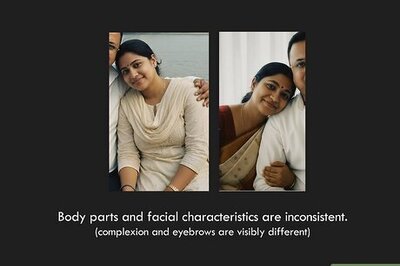
views
The morning after pill is a type of emergency contraceptive pill (ECP) that you can take post-coitus (after having sex) to avoid pregnancy. It is available in many countries (including India), is an effective reproductive health intervention, and has the potential to protect millions of women from unwanted pregnancies.
However, as the World Health Organization (WHO) points out, the use of the morning after pill is not as widespread as you’d hope it to be. Knowledge dissemination is definitely an issue, but even in the areas where knowledge of this type of contraception is higher, the WHO found that misconceptions about fertility, contraception and its safety are leading to less use. The following are some of the myths people across the world believe about ECPs, but shouldn’t.
Myth 1: The pill can only be taken the morning after having unprotected sex.
Fact: This myth comes from the fact that ECP is often called the morning after pill. So many believe that you have to have “morning-after pills” the morning after or at max within 24 hours of having unprotected sex, but these assumptions are wrong. Of course ECPs should be taken as soon as possible, but that does not mean there is no point in taking it if you forget to take it within 24 hours. In fact, the most commonly available ECPs in India, iPill or levonorgestrel, is effective if taken within 72 hours of unprotected sex or failed contraception. Another pill called Ella or ulipristal acetate is effective if you take it within five days.
Myth 2: An ECP induces abortion or helps terminate a pregnancy.
Fact: Abortion medications contain mifepristone and misoprostol, which induce and complete the medical termination process. ECPs, on the other hand, contain the hormone progestin. This hormone creates a condition where fertilisation of an egg, and therefore pregnancy, does not take place at all. In fact, if you’re already pregnant, taking a morning after pill will not change it. An ECP basically prevents a pregnancy and the need for abortion instead of inducing it.
Myth 3: An ECP protects you from pregnancy for the rest of the month.
Fact: Contraception pills come in many different forms and cater to very different needs. The ECP prevents pregnancy in the event of unprotected sex or the failure of other forms of contraception (like a tear in the condom), while birth control pills need to be taken daily to avoid pregnancy. It’s very important to remember the difference between the two and ensure that you take the one best suited to your needs. You should also know that ECPs shouldn’t be used as the main for of contraception.
Myth 4: You can only get ECPs if a doctor prescribes it.
Fact: While it’s very important that you know how to use an ECP the right way, you don’t necessarily need to rush to a doctor’s office after having accidental unprotected sex. These pills are easily available at pharmacies. However, it’s important to thoroughly read the accompanying leaflet and consult a gynaecologist at least once about taking ECPs and to find out if there are any contraindications in individual cases due to other reproductive health concerns.
Myth 5: An ECP is always and 100% effective.
Fact: Unfortunately, even though ECPs are effective to a large extent, they’re not 100% effective. If you take it late in your cycle, after ovulation has already happened, it might be less effective. ECPs are also lowered in potency if you’re taking medications to treat other illnesses such as epilepsy, heartburn, etc.
For more information, read our article on Contraceptive pills.
Health articles on News18 are written by myUpchar.com, India’s first and biggest resource for verified medical information. At myUpchar, researchers and journalists work with doctors to bring you information on all things health.




















Comments
0 comment